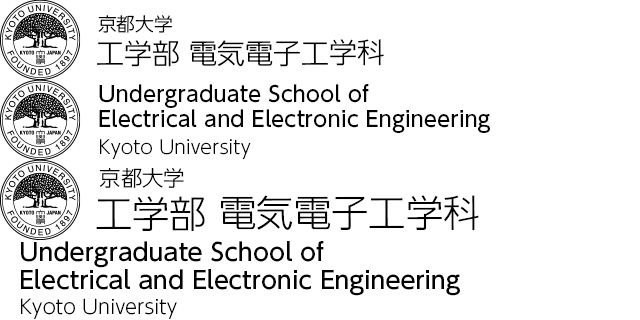Language Media Processing
In this lab, we pursue research into a variety of techniques and their applications for the purpose of computer processing of language. Language is critical in view of its vital role in human intelligence, so it is essential to investigate linguistic ability and elucidate human intellectual faculties. Language is also important as the key vehicle for human communication, and for the transmission of media across time. In this sense, scientific and engineering research into language is important not only in computer language-related fields, but also in a wide range of other technical disciplines.
Academic Staff
Sadao KUROHASHI
 Program-Specific Professor (Graduate School of Informatics)
Program-Specific Professor (Graduate School of Informatics)
Research Interests
Contacts
TEL: +81-75-753-5344
FAX: +81-75-753-5962
Yugo MURAWAKI
 Associate Professor (Graduate School of Informatics)
Associate Professor (Graduate School of Informatics)
Research Interests
Computational linguistics and natural language processing.
Contacts
Introduction to R&D Topics
Basic research on language processing
In order to perform language processing using computers, it is necessary to endow the computer with common sense and knowledge about the world. This used to be an extremely difficult problem 10 years ago, but with the remarkable progress in computing power and computer networking made since then, computers have been developed that have the ability to handle massive quantities of text and even to gradually and autonomously develop common sense. Our lab has developed a system that makes use of a computer cluster that has processed 500 million Japanese-language sentences collected from the Web and automatically learned Japanese predicate-argument structure patterns. We are applying this kind of knowledge to research aimed at using computers to understand sentences—that it, to analyzing the correlation between the words and phrases in texts.
Machine translation
With the aim of improving machine translation (done by computers) to make its quality closer that of good translations done by humans, we are conducting research into a next-generation translation method that works by understanding and paraphrasing words to generate a translation, and then referencing a massive database of example text. This system can already generate useful translations for travel conversations, and we are constructing a translation support system that can be utilized by translation experts working in specialized fields such as patent translation. In the financial year 2006 we also participated in the Japanese-Chinese translation project partially funded by the Japan Science and Technology Agency.
Construction of basic information retrieval techniques with structural natural language processing
The essential purpose of information retrieval is not to simply find a matching piece of text, but rather to acquire from it the desired information and knowledge. It is therefore vital that a computer-based search process is capable of "understanding" the text and the language it is searching. We are developing basic technology for next-generation information retrieval that applies structural natural language processing not only to single words, but also to predicate-argument units, assimilates the diversity of expressions, and delivers a comprehensive grasp of a text string based on a clustering and dialog process.
